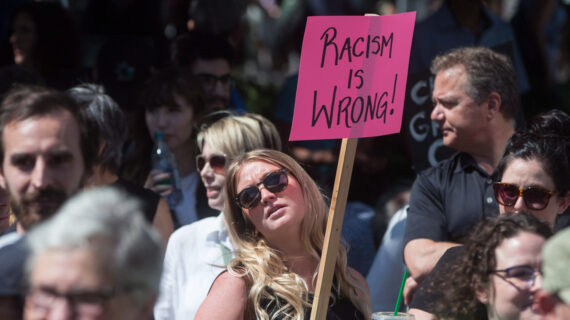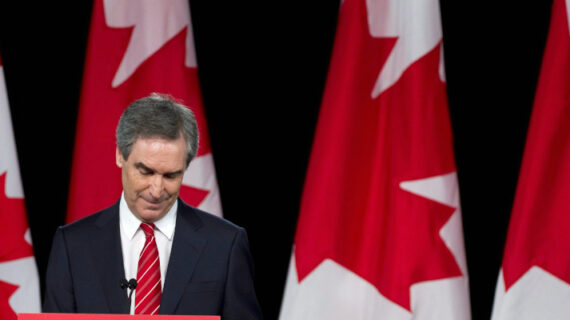As Conservative leader Pierre Poilievre transitioned from criticizing the government’s mini-budget on Thursday to suggesting what he would do instead, he turned around to have a private conversation with his caucus.
“We’re going to inherit this mess, all of us. We’re going to have to fix the problem. We have a big job ahead of us, don’t we?” he said.
There were a few surprised laughs from his colleagues, some cheers, and a spasm of bewildered heckles from the government benches.
It’s rare that a member of Parliament will turn his back to the speaker and the opposite benches, and rarer still for an opposition leader to talk about assuming power with all the enthusiasm of a weary school janitor getting ready to tackle a messy lunchroom.
Poilievre’s speech in the House of Commons travelled the same terrain as the ones he delivered during the Conservative leadership race, taking aim at gatekeepers of all kinds and promising to restrain government spending, but it also illuminated some key areas of agreement and disagreement with his political adversaries.
Poilievre front-loaded the disagreements, painting a picture of small-government Conservatives and big-government Liberals.
“When we Conservatives learn that the costly coalition was going to table this fall economic statement, we had two demands first, no new taxes. Second, no new spending unless that spending is paid through savings made elsewhere,” said Poilievre.
Although Freeland’s speech warned that the finances will be tighter in a world seized by high inflation, global conflict, and an ambient buzz of uncertainty, she still touted government as the main buffer against these threats.
“Canada cannot avoid the global slowdown any more than we could have avoided COVID once it had begun infecting the world. But we will be ready. Indeed, we are ready. That’s because for the past seven years, our government has been reinforcing Canada’s social safety net,” said Freeland.
“We have improved many important programs and added some new ones too,” said Freeland.
The balance sheets in the fall economic statement back Freeland up.
Even a few years down the road, when budget surpluses are on the horizon, the government is projecting that program spending will continue to be higher than it has been in the last two decades.
At about 15 percent of GDP this year, program spending has reached levels not seen since 1993, said University of Calgary economist Trevor Tombe, in an interview with The Hub. That number will taper off over the next five years but still remain about a percentage point higher than the average of the previous 20 years, according to Tombe’s calculations.
Anyone listening carefully to Poilievre’s words will notice that he hasn’t exactly called for cuts, but simply not to create programs without finding room in the budget first. He’s also promised to lead a government that does “a few important things well rather than many things poorly.”
And although Poilievre and Freeland both talked up their disagreements, the areas of consensus could be revealing.
Freeland has spoken recently about “friend-shoring,” which means bringing home vital manufacturing to Canada and its allies.
“We have the critical minerals and metals that are essential for everything, from cell phones to batteries, to appliances, to electric cars,” said Freeland, who promised to invest in these industries and bring skilled workers.
Poilievre seemed to agree with the premise but mocked the idea that the government could get it done.
“The minister said today, she’s going to pitch the world on our critical minerals. Problem is, she can’t get them out of the ground. She’s gonna tell everyone that they exist. Out there in that field, there’s some lithium and copper and nickel. But you have to wait seven years for us to give a permit for anyone to dig that mine,” said Poilievre.
A recent paper about a Canadian “supply rebuild,” co-authored by Edward Greenspon, the president and CEO of the Public Policy Forum, and Sean Speer, The Hub‘s editor-at-large, pointed out that these initiatives are naturally appealing to those on the moderate-right because they invariably involve an effort to slash red tape.
In the wake of the pandemic and the Russian invasion of Ukraine, both of which have snarled global supply chains, there has been a cross-ideological effort to lessen Western dependency on adversaries like China and Russia.
United States Treasury secretary Janet Yellen has referred to it as a “modern supply-side economics” and, in conversations with Freeland, has suggested that Canada could benefit from a concerted friend-shoring movement that pulls jobs away from China and toward U.S. allies.
Considering that inflation continues to confound many of the world’s largest economies, the idea of increasing costs further with friend-shoring efforts could be unappealing to many firms, wrote Michael Every, a global strategist at Rabobank, a large Dutch financial services company.
But in a note to clients, Every points out that the trend was already underway prior to the pandemic and could accelerate with governments putting their thumbs on the scale for national security reasons.
A Rabobank simulation of this accelerated friend-shoring movement finds that up to 28 million critical jobs could theoretically leave China, which would see China’s trade surplus decline from 3 percent to -0.6 percent of GDP.
While most of the manufacturing jobs will end up in countries like India and Bangladesh, Canada could lay claim to more than 100,000 high-tech jobs, according to the Rabobank estimates.




